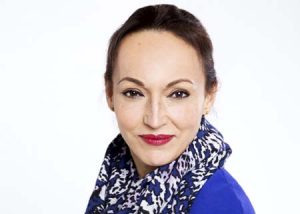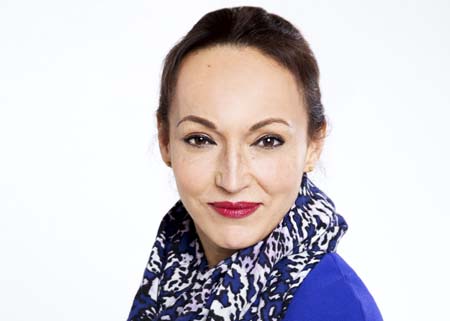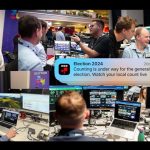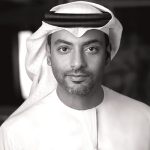In conversation with BroadcastPro ME, Natasha Hussain, GM & VP, Middle East and Mediterranean, BBC Worldwide, outlines a MENA strategy that recognises the diversity of the region and gives popular global programmes a local flavour.

In conversation with BroadcastPro ME, Natasha Hussain, GM & VP, Middle East and Mediterranean, BBC Worldwide, outlines a MENA strategy that recognises the diversity of the region and one that gives popular global programmes a local flavour.
How long have you been with the BBC, and which areas are part of your remit?
I have been with BBC Worldwide for more than 13 years and I am the GM across all commercial activity in every area for the BBC, not just in MENA but also Turkey, Greece and Cyprus.
Going by your recent initiatives, is it accurate to say you have been ramping up your efforts in the MENA region?
Thats right. Last year, we did a big deal with E-vision for 200 hours of content that we have licensed to them across multiple genres. We have BBC First on OSN, and now we have CBeebies and BBC Earth on BeIN as well in the region. We have had MBC as long-term partners with Shahid. I was in Riyadh recently, where I was invited formally to meet with Saudi Broadcasting Corporation (SBC) to start some discussions on how to collaborate and take our partnerships to the next level. We are also talking about multiple areas of business with them. For the first time, we also had SBCs CEO, Dawood Al Shoryan, come to the Showcase. He reached out to me to talk about how BBC could help and support SBC in their initiatives to reinvigorate and restart their programming. Etisalat and Turkcell also came to Showcase this year. We are also working closely with STC to see how to provide content for their new online platform.
What a lot of broadcasters in the region tell us is that British content works in a public space or in a family environment, or even in that private space. This is why we have had several partnerships in MENA both in the linear and digital space. BBC also tends to lead the way, not just in terms of 4K production but in terms of the next innovation. When we launched Blue Planet II, for instance, several scientific papers and new discoveries were published for the first time. People, therefore, look to us as a powerhouse of innovation and creativity, and its wonderful to be partnering with companies across the world.
BBC also tends to lead the way … in terms of the next innovation. When we launched Blue Planet II, for instance, several scientific papers and new discoveries were published for the first time. People … look to us as a powerhouse of innovation and creativity, and its wonderful to be partnering with companies across the world
Youve also been doing a lot of live events in the region of late.
Thats right. We have brought live events like BBC Earth, where we worked with Al Futtaim to bring the brand to audiences in new spaces. We see ourselves creating more VR content. I attended the first Comic Con that took place in Saudi Arabia last year and we noticed a huge passion for Dr Who, and with us having announced the first female Dr Who, we believe everyone is interested. In addition, we have been doing focus groups across KSA, Egypt, Morocco and the UAE to really speak to the people and showcase BBC content, so as to learn what works and to understand what they want to see more of.
What have you been doing with the focus groups? What trends have you noticed in this region?
In North Africa, for instance, the long connections with France means that their exposure to international and European programming is stronger and there is a hunger there. We are working with 2M and looking to build this. We are also looking to develop the digital aspect. There is so much happening in this market already. STC is just in the process of launching an OTT platform, and obviously, when companies launch such platforms, they look to us for our multitude of premium content to drive more subscribers. We have long-standing partnerships with several of the MENA players, especially the telcos, who are looking to tell their own stories.
Do you try to create bespoke versions for different territories, and do you produce local content?
We are involved in co-productions and those versions are shown in the local regions, but we dont shoot in foreign languages. If we say we are doing a film on natural history and so on, we are talking quite closely to Dubai and Abu Dhabi, and we are looking to tell those stories. For instance, as this is the Year of Zayed, we look at what we have in our archives that we can potentially showcase.
We do, however, tailor our content for local audiences. So we dont just take channels that are programmed for the European mentality. We have teams that research what really works for the MENA audiences and work with focus groups to get feedback. Thats what has led to us filming across the region, whether it is Top Gear in Abu Dhabi or the fifth season of Dancing with the Stars in Lebanon, or filming in Saudi Arabia. When you look at our global formats, we have several versions. The Weakest Link, for instance, is making a comeback, with more than 40 international versions. We are seeing this whole media landscape evolve, which means there is also a lot of innovation in the mobile space, with there being a lot of appetite for BBC content on these digital platforms.
















































































